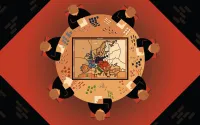30 July 2004
The disaster that has befallen the seabird colonies of Shetland and Orkney is not only a terrible blow to the ecology of those small islands, but a warning that even the slightest nudge to the world's environmental balance can have catastrophic knock-on effects.
The guillemots, arctic terns, kittiwakes and all the species of bird which inhabit these islands have registered one of their worst breeding seasons in living memory. The Royal Society for the Protection of Birds (RSPB) has observed very few chicks on the breeding cliff ledges. It seems that almost all the great skuas have failed to produce young this year.
The most obvious cause of this breeding failure is the northward migration of sandeels, the small fish on which the birds feed. With their traditional food supply largely out of reach, the birds have been finding it increasingly difficult to feed their chicks. Observers fear this trend has culminated in a total breeding collapse.
The reasons for the sandeel migration are not yet fully established. Fishing patterns have not helped, and the Shetland Fishermen's Association has made an agreement with RSPB Scotland and Scottish Natural Heritage to close the fishery in the south of Shetland. It is to be hoped that this will improve matters.
There are fears, however, that global warming could also be a factor. The RSPB now believes that changes in the climate caused the sandeels to move to colder waters further north. If this is true, it is a timely reminder of how unpredictable the effects of global warming are. The melting of the polar ice caps has been the subject of scientific discussion for some time but, as the experience of the birds of Orkney and Shetland demonstrates, there are myriad other ways in which global warming can imperil the environment.
A report printed in the science journal Nature earlier this year predicts that global warming could lead to the extinction of more than 1,000 species of plants, mammals, birds, reptiles and insects. The fate of the seabirds of Orkney and Shetland reminds us that we would be foolish to disregard such warnings.






